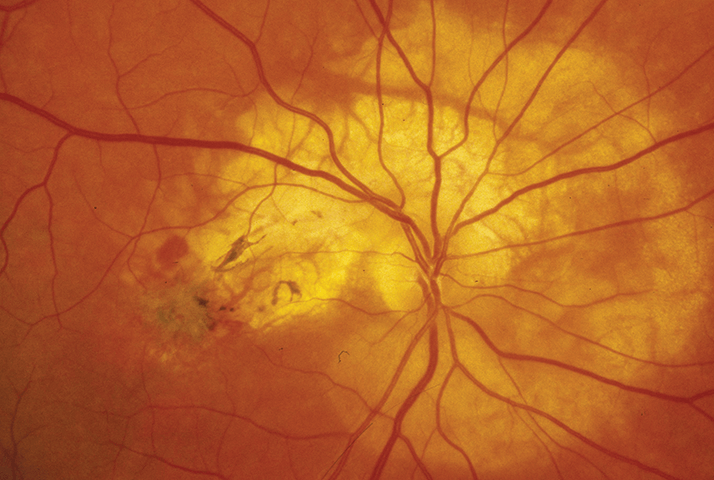
The latest data from the MYRROR trial indicate that there may soon be a new treatment option in town for myopic choroidal neovascularization (mCNV).
As previously reported in the evaluation of aflibercept versus sham treatment for CNV, aflibercept-receiving patients experienced a mean improvement in best-corrected visual acuity (BCVA) at week 24 of 12.1 letters from baseline, compared to a loss of two letters in those receiving sham injections (p<0.0001). What’s new is that the vision gains with aflibercept seen at week 24 were maintained until week 48 – despite patients receiving the drug almost exclusively within the first quarter of the study (a median of two aflibercept injections in weeks 0–12, and a median of zero injections thereafter). “Early and effective treatment options are urgently needed for patients with mCNV to avoid permanent vision loss,” said Bayer HealthCare’s Chief Medical Officer, Kemal Malik. “These data show the disease may be successfully managed with an acute treatment regimen in the majority of subjects; however, it is still critical that treatment be administered early in the onset of the disease for maximum benefit to the patient.”
Notably, Bayer intends to submit its first application for regulatory approval for the treatment of mCNV in Asia before the end of 2013 – a region (as detailed in our feature article (on page 16) that has a particularly high incidence of both myopia and mCNV. If successful, aflibercept may help slow or even halt the progression of a widespread disease that, left untreated, causes blindness within a decade.
